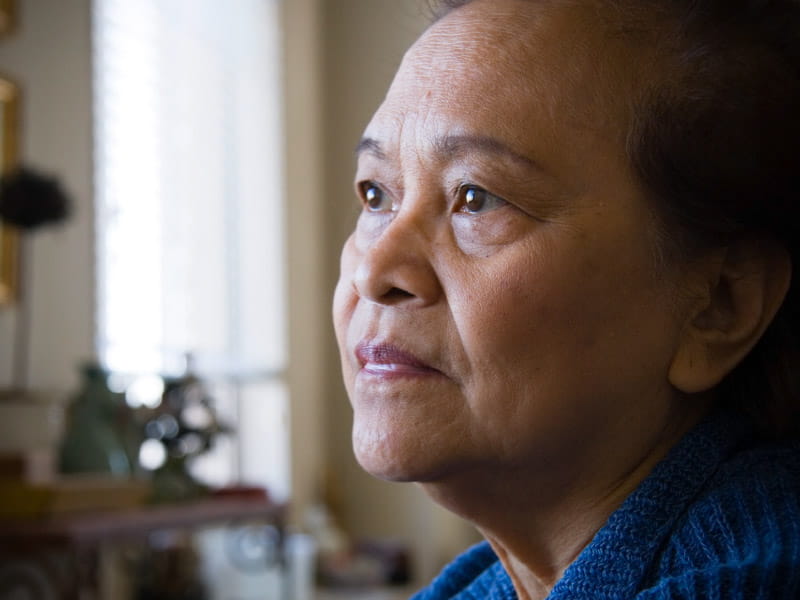Native Hawaiian and Pacific Islander adults have second-highest cardiovascular death rate in the U.S.
By Laura Williamson, American Heart Association News

Separating mortality data for Native Hawaiian and Pacific Islander adults from Asian American adults reveals large differences in how cardiovascular disease affects these populations, according to a new analysis.
Cardiovascular death rates for Native Hawaiians and Pacific Islanders are substantially higher than those for Asian American adults, second only to those for Black adults, the research shows. The findings will be presented Saturday at the American Heart Association's Scientific Sessions in Philadelphia. They are considered preliminary until the full results are published in a peer-reviewed journal.
"We believe that the high burden of cardiovascular disease deaths among the Native Hawaiian and Pacific Islander population in the United States has been historically underappreciated," said lead researcher Dr. Rebecca Woodruff, an epidemiologist at the Centers for Disease Control and Prevention in Atlanta. The analysis was done in collaboration with the University of Hawaii at Mānoa in Honolulu.
That's because historically, their data had been grouped with that of Asian American adults in public health research and surveillance, "even though these populations are distinct with respect to historical, cultural, linguistic and health-related factors," Woodruff said. Because of the Asian population's larger size, lumping the two groups together "potentially masks important differences," she said.
Race categories for U.S. death certificates were modified in 2018, splitting the two groups. The study analyzed data since that split for thousands of cardiovascular-related deaths in the U.S. for adults 35 and older, comparing mortality rates for people identified as Native Hawaiian and Pacific Islander alone to Asian adults, Black adults and U.S. adults overall.
The cardiovascular mortality rate for single-race Native Hawaiian and Pacific Islander adults was 86% higher than that of Asian American adults and second only to Black adults, the analysis showed. It was 7% higher than the overall death rate for heart disease and stroke among U.S. adults.
In contrast, according to the Office of Minority Health at the U.S. Department of Health and Human Services, Asian Americans have some of the lowest rates of heart disease in the U.S. They are less likely to have or die from heart disease than their non-Hispanic white peers and generally have lower rates of cardiovascular risk factors, such as obesity, smoking and high blood pressure.
Combining such disparate groups makes it difficult to assess health risks for each population, said Dr. Latha Palaniappan, an internal medicine doctor and a professor of cardiovascular medicine at Stanford University in California. She was not part of the study.
"When we aggregate data for (diverse) groups, we miss important signals in cardiovascular disease," she said. "More than 40 different ethnic subgroups are included in the American Asian and Native Hawaiian/Pacific Islander category. It is critical to disaggregate these groups as much as possible to provide a clear picture of health risks for these diverse groups, so we can provide better prediction, prevention and treatment to diverse populations."
Woodruff and her colleagues said multiple factors, including a history of oppression, may be driving the higher mortality rates among Native Hawaiian and Pacific Islander adults.
"Health outcomes among the Native Hawaiian and Pacific Islander population have likely been shaped by the legacy of Western colonialism of the Pacific region, which included loss of Native land, cultural practices and assimilation to the dominant culture," she said. "The resulting historical trauma has profoundly altered the economic realities and environmental conditions of Native Hawaiian and Pacific Islander populations, contributing to the high prevalence of chronic diseases and related risk factors."
They also experience social stressors such as discrimination and limited opportunities to engage in behaviors known to reduce cardiovascular risk, including eating a healthy diet, staying physically active, managing weight and controlling cholesterol, blood sugar and blood pressure levels, Woodruff said. "It is also possible that Native Hawaiian and Pacific Islander adults are less likely to receive health care, which could lead to delayed prevention, detection and treatment of acute or chronic cardiovascular diseases," she said.
Of the heart disease and stroke deaths among Native Hawaiians and Pacific Islanders in the study, 25% occurred among Native Hawaiian adults, 24% among Samoan adults and 11% among Guamanian adults, while 40% were attributed to "other" Pacific Islanders, suggesting the grouping is still too broad, Palaniappan said.
"That is a group that needs to be even further disaggregated so we can identify high-risk populations and provide targeted public health and clinical programs for prevention," she said.
Find more news from Scientific Sessions.





